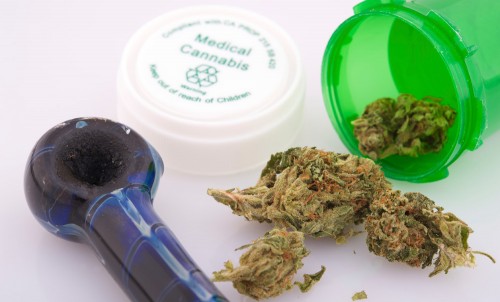Updated Nov. 11, 2015 at 8:45 a.m.
The acting chief of the Drug Enforcement Administration called the concept of smokable medical marijuana “a joke” — and he also implored, “don’t call it medicine.”
In his black-and-white assessment of medical cannabis, DEA chief Chuck Rosenberg also contradicted one of the most important and thorough evaluations of marijuana’s medical applications — an exhaustive analysis published in the Journal of the American Medical Association in June. His statements have drawn the ire of medical marijuana advocates.
More on the DEA’s evolving relationship with cannabis
This was big: Federal court attacks DEA policies on medical marijuana
Major think tank: Federal government is stifling medical pot research
How much does DEA pot eradication cost? In Oregon, $60 per plant
NEW: Get podcasts of The Cannabist Show.
Subscribe to our newsletter here.
Watch The Cannabist Show.
“There are pieces of marijuana — extracts or constituents or component parts — that have great promise” medicinally, Rosenberg said while briefing reporters on Nov. 4, according to CBS News. “But if you talk about smoking the leaf of marijuana — which is what people are talking about when they talk about medicinal marijuana — it has never been shown to be safe or effective as a medicine.”
The JAMA analysis — and other credible research — would suggest, however, that never is too strong a word in this specific debate.
The JAMA analysis showed that medical marijuana hasn’t yet been proven scientifically to remedy most of the conditions state governments have authorized it to treat — namely PTSD, glaucoma, arthritis, Parkinson’s disease and other ailments. But that same report, which was based on 79 trials involving nearly 6,500 participants, also noted that medical pot can help patients with severe pain, nausea and vomiting related to chemotherapy and spasticity from multiple sclerosis.
A 2010 University of California report meant to “expand the public scientific knowledge on purported therapeutic usages of marijuana” also proved that marijuana does have specific medical properties, even when smoked.

After conducting 15 clinical studies and seven clinical trials, researchers at the University of California’s Center for Medicinal Cannabis Research wrote:
“To date, four CMCR-funded studies have demonstrated that cannabis has analgesic effects in pain conditions secondary to injury (e.g. spinal cord injury) or disease (e.g. HIV disease, HIV drug therapy) of the nervous system.”
“In addition to nerve pain, CMCR has also supported a study on muscle spasticity in Multiple Sclerosis (MS). Such spasticity can be painful and disabling, and some patients do not benefit optimally from existing treatments. The results of the CMCR study suggest that cannabis reduces MS spasticity, at least in the short term, beyond the benefit available from usual medical care.”
“Smoked cannabis reduced daily pain by 34% compared to 17% with placebo. The study concluded that a significantly greater proportion of patients who smoked cannabis (52%) had a greater than 30% reduction in pain intensity compared to only 24% in the placebo group.”
Concentrates 101
Part 1: What’s on the market? Info about kief, BHO, water hash and more
Part 2: How should I smoke this shatter? There are many ways to consume concentrates
Part 3: Are concentrates right for me? What you need to know about potency, expected effects and more
On Nov. 6, pro-legalization outfit the Marijuana Majority reacted to Rosenberg’s comments by starting a change.org petition that called on President Barack Obama to fire Rosenberg. “Fire DEA Administrator Chuck Rosenberg for referring to medical marijuana, which many seriously ill people rely on, as a ‘joke’,” said the petition, which was signed and tweeted about by singer and cannabis activist Melissa Etheridge, who used medical marijuana daily while in chemotherapy for her breast cancer. As of the morning of Nov. 11, the petition had more than 15,000 signatures.
By automatically pairing pot smoking with “what people are talking about when they talk about medicinal marijuana,” Rosenberg also ignores that many medical cannabis patients ingest their marijuana in the form of edibles, oils and other methods.
“What really bothers me is the notion that marijuana is also medicinal — because it’s not,” Rosenberg said. “We can have an intellectually honest debate about whether we should legalize something that is bad and dangerous, but don’t call it medicine — that is a joke.”
Rosenberg’s comments on cannabis came shortly after the DEA released its most recent National Drug Threat Assessment Summary, which included the results of a new national survey of law enforcement agencies. When the 1,000-plus departments were asked about their biggest drug threats, cannabis came in at the bottom of the list — named by only 6 percent of the respondents.
